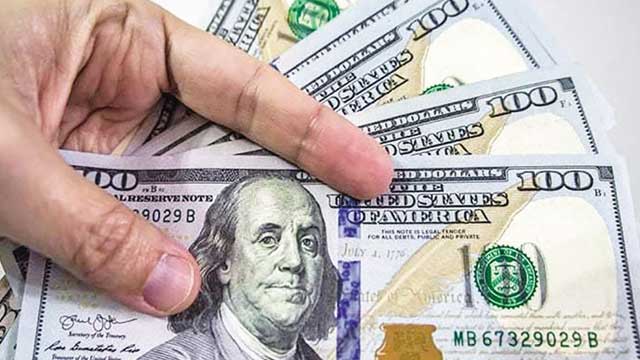In March, Bangladesh saw a worrying 1.23% drop in remittance inflows, totalling $1.99 billion right before Eid.
This decrease was unexpected, especially during Eid celebrations, according to Bangladesh Bank data. The decline is mainly due to the increased use of the hundi system, an illegal method offering better exchange rates for US dollar transfers than official channels.
March's receipts fell by 7.71% compared to February when remittances reached $2.16 billion. January and February had strong performances, each surpassing $2 billion in remittances, which helped bolster the country's foreign exchange reserves.
The current trend shows a decrease in the US dollar's value against the Bangladeshi taka, dropping from Tk120-122 in January and February to Tk113-114 in March. Despite this, informal channels remain popular due to perceived advantages.
The central bank, in its quarterly report (July-September), identified the informal hundi channel as one of the major factors contributing to the recent fall in the country's remittance inflows.
Despite the rise in migrant workers' numbers in Gulf and Middle-East countries, the amount of remittance inflows decreased in the first quarter of the current FY24 due to active informal channels/hundi, the central bank's quarterly report stated.
Seeking anonymity, a banker said that just a few days ago, expatriates were receiving Tk123 to Tk124 when sending remittances through banks. However, last week, there was a sudden decline, dropping to Tk112.5 and Tk113.
Meanwhile, the hundi price remains stable at Tk120 to Tk121. This abrupt drop in bank rates, which previously aligned closely with hundi rates, has caused concern among stakeholders.
Banks mention a shortage of dollars, leading some banks to buy them at higher rates, worsening the gap between formal and informal remittance channels. The upcoming Ramadan typically sees a surge in remittances, but this year's performance is uncertain given the market conditions.
Some also claim that numerous banks are purchasing remittances at rates Tk10/12 above the standard price. They do this to secure funds for refinancing and opening Letters of Credit (LCs) for institutions they favor.
Bangladesh's foreign exchange reserves, recently at $20.57 billion, have been declining since reaching $48 billion in August 2021.
The central bank is selling reserves to meet import obligations, highlighting the challenge of balancing remittance inflows, reserve management, and the impact of informal channels.
A managing director of a third generation bank in the country, requesting anonymity, said that the value of the dollar fell slightly on expatriate income, but it has started to rise again.
"We anticipated a good amount of expatriate income before Eid-ul-Fitr. But why this was not the case, we are not sure yet. However, many expatriates have sent remittance in February, and many can send it in April as well. There is still time to send money to the country before Eid," he added.
Dr Ashikur Rahman, an executive member of Bangladesh Awami Jubo League and senior economist at the Policy Research Institute (PRI), told Dhaka Tribune: “It is very unusual but it might only indicate that people are choosing informal means to remit home.”
“This is why having multiple exchange rate is always a problem as it incentives exporters and remitting workers to choose informal means to bring back their earning and it creates adverse conditions for our balance of payments,” he added.
A record number of Bangladeshi migrants - 1.31 million, went abroad for jobs in 2023, up from 1.14 million of the previous year.
A World Bank report last year stated that remittance inflow to Bangladesh will remain at $23 billion in 2024, while it reached approximately the same figure by the end of 2023.
The report said the growth in formal remittances is projected to remain flat on account of the lingering impacts of the recent balance of payment crisis that triggered exchange controls and led to parallel market exchange rate premium.
Depreciation and exchange rate management policies have led migrants in countries such as Bangladesh to take advantage of the black-market premium and transfer funds through informal and formal channels.





